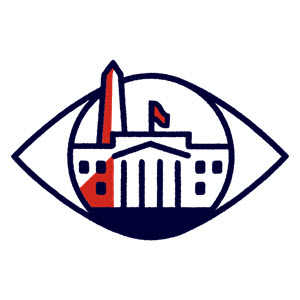Filing Extensions for Forms W-2 and 1099-MISC Are NOT Automatic

On August 1, 2018, the Internal Revenue Service (IRS) released Treasury Decision (TD) 9838, "Extension of Time to File Certain Information Returns," which clarified that filing due date extension requests for Forms W-2 and 1099-MISC reporting would not be automatically approved. Filing extension requests must meet specified criteria and be requested on the appropriate IRS form by the filing deadline (i.e., January 31). Requests for extensions of the filing deadline have no effect on the deadline to furnish forms to recipients.
Background
The IRS maintains procedures by which employers filing Forms W-2 (and/or other Information Returns) can request extensions of time to file. Prior to 2016, such extension requests were generally automatically approved. However, on August 13, 2015, the IRS published temporary regulations (TD 9730 (80 FR 48433)) removing the automatic 30-day extension of time to file Forms W-2 series, and providing a single nonautomatic 30-day extension of time to file these forms.
Statutory Changes to Due Dates and Penalties
The Protecting Americans from Tax Hikes Act of 2015 (PATH Act), P.L. 114-113, enacted December 18, 2015, changed the due date for filing Forms W-2 and Forms 1099-MISC reporting nonemployee compensation to January 31. Prior to the PATH Act, Forms W-2 were due by the last day of February, or March 31 if filed electronically. Forms 1099-MISC were due by February 28, or March 31 if filed electronically. Both must now be filed by January 31, regardless of whether they are filed on paper or electronically.
IRS information-reporting penalties may apply under Internal Revenue Code (IRC) Sections 6721 and/or 6722 for failure to file and/or furnish, respectively, correct Information Returns by the required due date. Penalties may apply if an employer:
- Fails to file timely
- Fails to include all information required to be shown on Form W-2
- Includes incorrect information on Form W-2
- Files on paper when required to file electronically
Penalties under Section 6721 can be up to $270 per Form W-2, up to an annual maximum of $3,282,5001 for 2018. For businesses with gross receipts of not more than $5,000,000 annually, the annual maximum is $1,094,000 annually. Penalty amounts are indexed and may change annually.
Separate penalties under IRC Section 6722 (for failure to furnish timely and accurate Information Returns to recipients) may apply to the same error. Both penalties may apply. For example, if an employer furnished an incorrect form to an employee and also failed to file a correct Form W-2 by the applicable deadline and filing method, a penalty of $540 per Form W-2 may apply.
Filing Extensions for Forms W-2 and 1099-MISC Are NOT Automatic
In TD 9838, the Treasury explains that "Identity theft and refund fraud are persistent and evolving threats to the nation's tax system. They place an enormous burden on the tax system and taxpayers. Identity thieves and unscrupulous preparers often claim refunds by electronically filing fraudulent tax returns early in the tax filing season." Because of the importance of Forms W-2 and Forms 1099-MISC reporting nonemployee compensation, extensions of the deadline to file these forms will not be automatic. Nonemployee compensation is reported in box 7 of the Form 1099-MISC.
Previously, Form 8809 required a narrative explanation of the need for an extension, which was difficult to administer and led to uncertainties. Consequently, Form 8809 will be revised, in time for the 2019 filing season, to provide checkboxes to indicate the reason for the extension request. Extensions will be granted only if:
(1) The business suffered a catastrophic event in a Federally Declared Disaster Area that made the business unable to resume operations or made necessary records unavailable;
(2) Fire, casualty or natural disaster affected the operation of the business;
(3) Death, serious illness, or unavoidable absence of the individual responsible for filing the Information Returns affected the operation of the business;
(4) The Information Return is being filed for the first year the business was established; or
(5) The filer did not receive timely data on a third-party payee statement (such as statement of sick pay).
To make such a request, the filer must submit the Form 8809 on or before the due date of the Information Return, and sign the form under penalty of perjury. Only one 30-day extension of time may be requested.
No Effect on Deadline to Furnish Statements to Recipients
Extensions of time to file do not extend the time for furnishing statements to recipients. Most IRS Information Returns, such as Forms W-2, 1099-MISC and 1095-C, must be furnished to recipients (e.g., employees) by January 31. If an employer is unable to meet this deadline, a 30-day extension of time to furnish IRS statements can be requested by submitting a letter to the IRS with the following information:
- Employer name, address and Federal Employer Identification Number (FEIN)
- Type of return (e.g., "Form W-2")
- Specify that the extension request is to provide statements to recipients
- Reason for the delay (The IRS requires a substantive explanation; e.g., steps taken to prepare and why it was not possible to complete the task on time.)
- Signature of duly authorized person
- Requests for extensions of time to furnish IRS forms to employees are not automatically approved.
Information Returns That Are Eligible for Automatic Filing Extensions
TD 9838 specified the types of Information returns that will be eligible for automatic extensions of time, if requested. These include:
- Form W-2G "Certain Gambling Winnings"
- Form 1042-S "Foreign Person's U.S. Source Income Subject to Withholding"
- Form 1094-C "Transmittal of Employer-Provided Health Insurance Offer and Coverage Information Returns"
- Form 1095-B "Health Coverage"
- Form 1095-C "Employer-Provided Health Insurance Offer and Coverage"
- Form 3921 "Exercise of an Incentive Stock Option Under Section 422(b)"
- Form 3922 "Transfer of Stock Acquired Through an Employee Stock Purchase Plan Under Section 423(c)"
- Form 8027 "Employer's Annual Information Return of Tip Income and Allocated Tips"
- Form 1097 series
- Form 1098 series
- Form 1099 series (except forms reporting nonemployee compensation)
- Form 5498 series
Not Entirely Automatic ― Extensions Must Still Be Requested
Filers can request an automatic 30-day extension of time to file the Information Returns that are eligible for automatic extensions by filing a Form 8809, "Application for Extension of Time to File Information Returns" on or before the due date of the Information Return. The filer is not required to sign the Form 8809 or provide an explanation to request the automatic 30-day extension. An additional nonautomatic 30-day extension can be requested, although this must be signed under penalties of perjury and include an explanation of why an additional extension of time to file was needed.
Effective Date
The final regulation is effective on August 3, 2018, and applies to requests for extensions of time to file Information Returns due after December 31, 2018 (i.e., 2018 Forms W-2 filed and furnished in early 2019).
For details, see TD 9838, "Extension of Time to File Certain Information Returns," 83 FR 38023.
1 IRS Revenue Procedure 2017-58
ADP Compliance Resources
ADP maintains a staff of dedicated professionals who carefully monitor federal and state legislative and regulatory measures affecting employment-related human resource, payroll, tax and benefits administration, and help ensure that ADP systems are updated as relevant laws evolve. For the latest on how federal and state tax law changes may impact your business, visit the ADP Eye on Washington Web page located at www.adp.com/regulatorynews.
ADP is committed to assisting businesses with increased compliance requirements resulting from rapidly evolving legislation. Our goal is to help minimize your administrative burden across the entire spectrum of employment-related payroll, tax, HR and benefits, so that you can focus on running your business. This information is provided as a courtesy to assist in your understanding of the impact of certain regulatory requirements and should not be construed as tax or legal advice. Such information is by nature subject to revision and may not be the most current information available. ADP encourages readers to consult with appropriate legal and/or tax advisors. Please be advised that calls to and from ADP may be monitored or recorded.
If you have any questions regarding our services, please call 855-466-0790.
ADP, LLC.
One ADP Boulevard,
Roseland, NJ 07068
Updated on August 8, 2018



